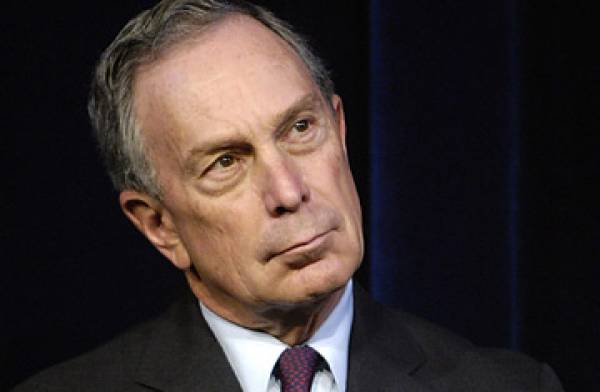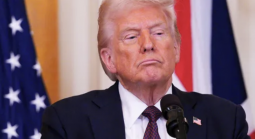Mike Bloomberg for President: On Gambling Issues, He’s No Sure Bet

U.S. President Barack Obama, a Democrat up for re-election next year, has plummetting poll numbers so his re-election is anything but assured.
The main opposition party, the Republicans, have no clear mandate as to who will be their nominee and challenge Obama in 2012.
To many, the opening for a credible third-party candidate who could run for President and win is wide enough for a Mack truck to drive through.
And the name most often mentioned in that role is New York City Mayor Michael Bloomberg, a lifelong Democrat who became a Republican when he successfully ran for mayor in 2001 (he's since be re-elected twice, in 2005 and 2009.)
Although he has repeatedly denied having any interest in running for President, in politics anything can happen, so that could change.
Especially if Obama's poll numbers remain low and whoever the Republicans nominate fails to catch fire.
As a Presidential candidate--and as President should he manage to win--how would Bloomberg stack up on issues of interest to the gambling community?
Gambling911.com, as part of its continuing series on the gambling views of the current and potential Presidential candidates, examined Bloomberg's record on all things gambling-related and discovered that he's a mixed bag.
At times he has supported gambling.
At other times he has opposed it.
So trying to predict how he'd come down on a future gambling issue as President of the United States would be as difficult as trying to predict an NFL score.
Nevertheless, here's what we found out:
According to the August 27, 2003 edition of the New York Post, Bloomberg the previous day suggested on his weekly local radio show that he'd like to see casinos legalized in New York City, considering that casinos already exist in nearby states and in upstate New York on Indian reservations, causing the Big Apple to lose out on potential gambling profits.
"If everybody is going next door across a border, spending their money there, why not keep the money here?" the Post reported Bloomberg said on his show.
But just a little more than a year later, Bloomberg threw gambling under the bus.
According to the January 21, 2005 edition of the New York Post, Bloomberg the previous day said he was not enthusiastic about then-Governor George Pataki's proposal to build five video lottery casinos in New York City to help raise millions of dollars for state schools (video lottery terminals, or VLTs, are similar to slot machines).
"From a philosophical point of view, gambling tends to be regressive, and I don't know that that's the best way to balance the budget," the Post quoted Bloomberg as saying.
Almost three years after that, when New York City's off-track betting (OTB) industry was costing the city more than it earned for it, Bloomberg didn't want to save OTB, despite the fact that closing the city's 68 OTB parlors would have cost 1,500 people their jobs.
According to the October 19, 2007 edition of the New York Times, Bloomberg at a news conference the previous day said it may be time to close down the city's OTB operations, in order to get the city out of a long-troubled business.
Although the OTB's annual revenues exceed its annual operating expenses, resulting in annual profits, OTB has to turn over so much of those profits to the State of New York that the City of New York cannot reap any benefits, the mayor said.
"The State uses it (OTB) as a cash cow and the City has been subsidizing the State, and we are not going to continue to do that," the Times quoted Bloomberg as saying.
Less than a year later, Bloomberg set a date to shut down all New York City OTB parlors.
The June 13, 2008 edition of the New York Times reported that Bloomberg the previous day said at a news conference: "New York City is not going to lay off one cop, one firefighter or one teacher so that we can support a bookie operation. Period. End of story. This Sunday is the last day. If the State wants to take it over, fine. I’m happy to let them do it."
Days later, that's what happened.
A last-minute deal between then-Governor David Patterson and Bloomberg, whereby the City turned over its OTB operations to the State but still will share in the OTB profits, averted the threatened shutdown, according to the June 16, 2008 editon of the New York Times.
The newspaper quoted Bloomberg as saying the previous day: “Working with State leaders, we have put out to pasture a fiscally flawed arrangement with OTB, one that threatened to divert City funds from police and fire protection, public schools and other essential services."
So let the record show that Bloomberg favored casinos in New York City, before deciding to oppose them (to date none have been built).
He also favored letting the City's OTB parlors go belly up, but then changed his mind on that too.
Flip-flopping on gambling issues seems to be the norm, not the exception, for the diminutive, fast-talking billionaire mayor who was born in Boston and made his fortune starting Bloomberg News.
But to anyone familiar with politics, the flip-flops should be no surprise.
After all, Bloomberg made the biggest flip-flip possible in politics--changing political parties--just so he could have an easier road to getting elected mayor.
By Tom Somach
Gambling911.com Staff Writer













